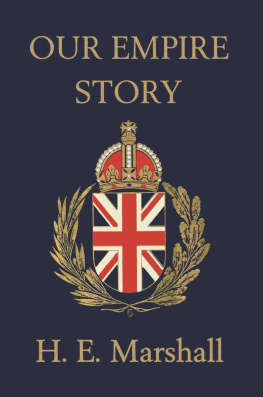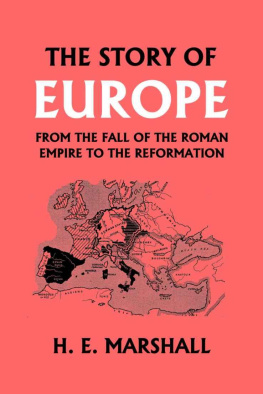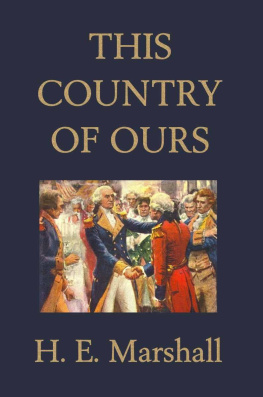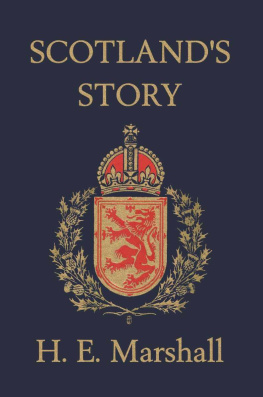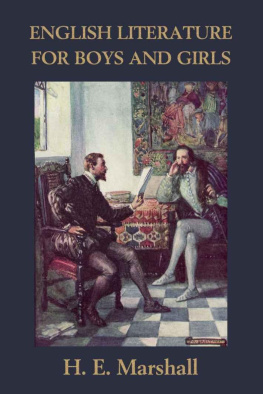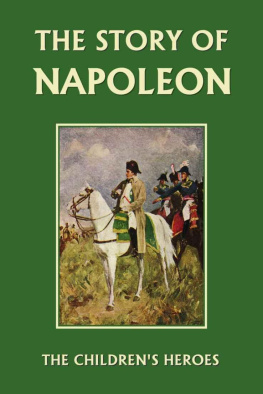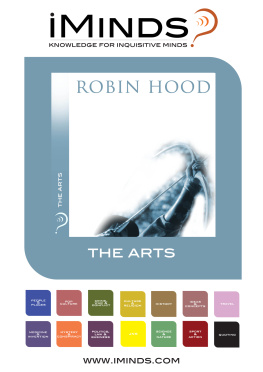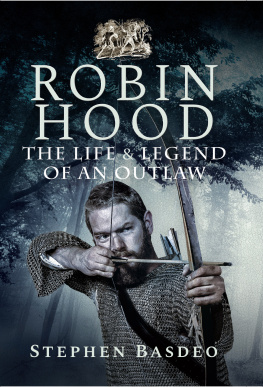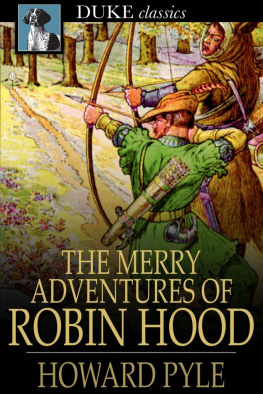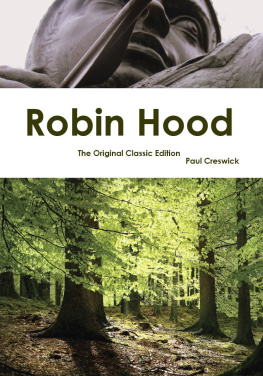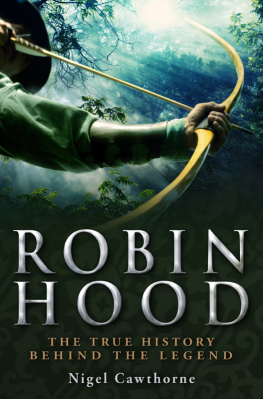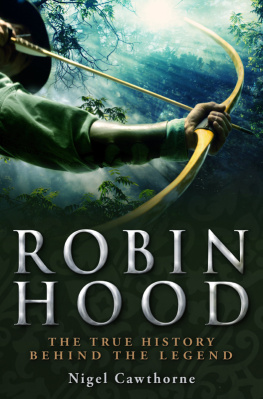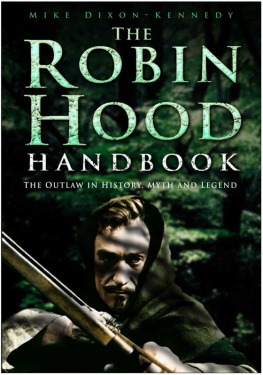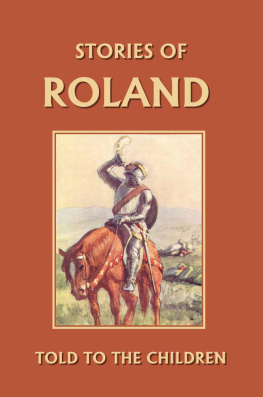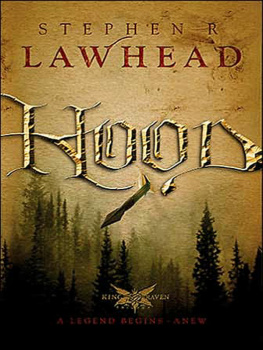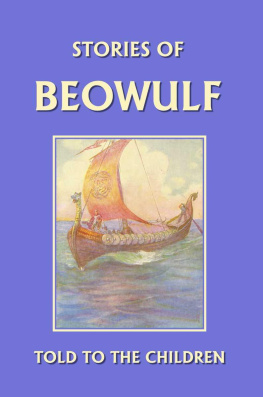H. E. Marshall - Stories of Robin Hood Told to the Children
Here you can read online H. E. Marshall - Stories of Robin Hood Told to the Children full text of the book (entire story) in english for free. Download pdf and epub, get meaning, cover and reviews about this ebook. year: 2005, publisher: Yesterdays Classics, genre: Detective and thriller. Description of the work, (preface) as well as reviews are available. Best literature library LitArk.com created for fans of good reading and offers a wide selection of genres:
Romance novel
Science fiction
Adventure
Detective
Science
History
Home and family
Prose
Art
Politics
Computer
Non-fiction
Religion
Business
Children
Humor
Choose a favorite category and find really read worthwhile books. Enjoy immersion in the world of imagination, feel the emotions of the characters or learn something new for yourself, make an fascinating discovery.
- Book:Stories of Robin Hood Told to the Children
- Author:
- Publisher:Yesterdays Classics
- Genre:
- Year:2005
- Rating:5 / 5
- Favourites:Add to favourites
- Your mark:
- 100
- 1
- 2
- 3
- 4
- 5
Stories of Robin Hood Told to the Children: summary, description and annotation
We offer to read an annotation, description, summary or preface (depends on what the author of the book "Stories of Robin Hood Told to the Children" wrote himself). If you haven't found the necessary information about the book — write in the comments, we will try to find it.
Stories of Robin Hood Told to the Children — read online for free the complete book (whole text) full work
Below is the text of the book, divided by pages. System saving the place of the last page read, allows you to conveniently read the book "Stories of Robin Hood Told to the Children" online for free, without having to search again every time where you left off. Put a bookmark, and you can go to the page where you finished reading at any time.
Font size:
Interval:
Bookmark:
All rights reserved. No part of this book may be reproduced or retransmitted in any form or by any means without the written permission of the publisher.
This edition, first published in 2010 by Yesterday's Classics, an imprint of Yesterday's Classics, LLC, is an unabridged republication of the work originally published by T. C. & E. C. Jack in 1907. This title is available in a print edition (ISBN 978-1-59915-001-7).
Yesterday's Classics republishes classic books for children from the golden age of children's literature, the era from 1880 to 1920. Many of our titles are offered in high-quality paperback editions, with text cast in modern easy-to-read type for today's readers. The illustrations from the original volumes are included except in those few cases where the quality of the original images is too low to make their reproduction feasible. Unless specified otherwise, color illustrations in the original volumes are rendered in black and white in our print editions.
D EAR J OS,Robin Hood was a real man. The stories about him are very old. They were written many, many years ago by men whose names have been forgotten. The old letters in which they were printed are very difficult to read, but now, in this little book, you will find the stories easy both to read and to understand. The poetry is in the same words as it was in those old books.
Robin Hood lived in times very different from ours. In the first chapter of this book I have told you about those times, and how and why Robin came to live in the Green Wood, and to have all his wonderful adventures.
If you do not care about the "how and why," you must begin the book at its second chapter, but I hope you will begin at the beginning, for the more you know about brave Robin, the more you will love and admire him.
Your loving Aunt,
H.E. M ARSHALL
V ERY many years ago there ruled over England a king, who was called Richard Cur de Lion. Cur de Lion is French and means lion-hearted. It seems strange that an English king should have a French name. But more than a hundred years before this king reigned, a French duke named William came to England, defeated the English in a great battle, and declared himself king of all that southern part of Britain called England.
He brought with him a great many Frenchmen, or Normans, as they were called from the name of the part of France over which this duke ruled. These Normans were all poor though they were very proud and haughty. They came with Duke William to help him fight because he promised to give them money and lands as a reward. Now Duke William had not a great deal of money nor many lands of his own. So when he had beaten the English, or Saxons, as they were called in those days, he stole lands and houses, money and cattle from the Saxon nobles and gave them to the Normans. The Saxon nobles themselves had very often become the servants of these proud Normans. Thus it came about that two races lived in England, each speaking their own language, and each hating the other.
This state of things lasted for a very long time. Even when Richard became king, more than a hundred years after the coming of Duke William, there was still a great deal of hatred between the two races.
Richard Cur de Lion, as his name tells you, was a brave and noble man. He loved danger; he loved brave men and noble deeds. He hated all mean and cruel acts, and the cowards who did them. He was ever ready to help the weak against the strong, and had he stayed in England after he became king he might have done much good. He might have taught the proud Norman nobles that true nobility rests in being kind and gentle to those less strong and less fortunate than ourselves, and not in fierceness and cruelty.
Yet Richard himself was neither meek nor gentle. He was indeed very fierce and terrible in battle. He loved to fight with people who were stronger or better armed than himself. He would have been ashamed to hurt the weak and feeble.
But Richard did not stay in England. Far, far over the seas there is a country called Palestine. There our Lord was born, lived, and died. Christian people in all ages must think tenderly and gratefully of that far-off country. But at this time it had fallen into the hands of the heathen. It seemed to Christian people in those days that it would be a terrible sin to allow wicked heathen to live in the Holy Land. So they gathered together great armies of brave men from every country in the world and sent them to try to win it back. Many brave deeds were done, many terrible battles fought, but still the heathen kept possession.
Then brave King Richard of England said he too would fight for the city of our Lord. So he gathered together as much money as he could find, and as many brave men as would follow him, and set out for the Holy Land. Before he went away he called two bishops who he thought were good and wise men, and said to them: "Take care of England while I am gone. Rule my people wisely and well, and I will reward you when I return." The bishops promised to do as he asked. Then he said farewell and sailed away.
Now King Richard had a brother who was called Prince John. Prince John was quite different from King Richard in every way. He was not at all a nice man. He was jealous of Richard because he was king, and angry because he himself had not been chosen to rule while Richard was in Palestine. As soon as his brother had gone, John went to the bishops and said, "You must let me rule while the king is away." And the bishops allowed him to do so. Deep down in his wicked heart John meant to make himself king altogether, and never let Richard come back any more.
A sad time now began for the Saxons. John tried to please the haughty Normans because they were great and powerful, and he hoped they would help to make him king. He thought the best way to please them was to give them land and money. So as he had none of his own (he was indeed called John Lackland) he took it from the Saxons and gave it to the Normans. Thus many of the Saxons once more became homeless beggars, and lived a wild life in the forests, which covered a great part of England at this time.
Now among the few Saxon nobles who still remained, and who had not been robbed of their lands and money, there was one called Robert, Earl of Huntingdon. He had one son also named Robert, but people called him Robin. He was a favourite with every one. Tall, strong, handsome, and full of fun, he kept his father's house bright with songs and laughter. He was brave and fearless too, and there was no better archer in all the countryside. And with it all he was gentle and tender, never hurting the weak nor scorning the poor.
But Robert of Huntingdon had a bitter enemy. One day this enemy came with many soldiers behind him, determined to kill the earl and take all his goods and lands. There was a fierce and terrible fight, but in the end Robert and all his men were killed. His house was burned to the ground and all his money stolen. Only Robin was saved, because he was such a splendid archer that no soldier would go near him, either to kill him or take him prisoner. He fought bravely till the last, but when he saw that his father was dead and his home in flames, he had no heart to fight any longer. So taking his bow and arrows, he fled to the great forest of Sherwood.
Font size:
Interval:
Bookmark:
Similar books «Stories of Robin Hood Told to the Children»
Look at similar books to Stories of Robin Hood Told to the Children. We have selected literature similar in name and meaning in the hope of providing readers with more options to find new, interesting, not yet read works.
Discussion, reviews of the book Stories of Robin Hood Told to the Children and just readers' own opinions. Leave your comments, write what you think about the work, its meaning or the main characters. Specify what exactly you liked and what you didn't like, and why you think so.


